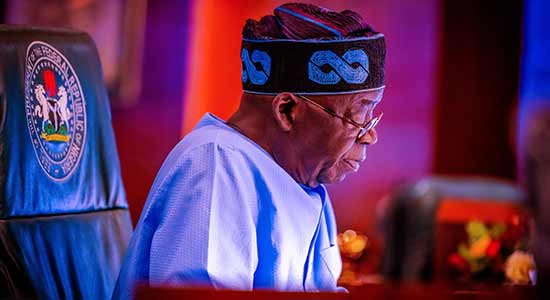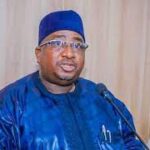The most expensive venture a nation can embark on or get involved in is the investment in preserving lives and properties.
No wonder, the world was moved after the world wars on December 10, 1948, to adopt in a General Assembly of the United Nations, the Universal Declaration of Human Rights guaranteeing the right to life.
This was followed by the African Charter on Human and Peoples Rights in 1979 to adopt human rights within the African continent as an International Treaty. (Article 4)
Nations all over the world are governed by the fundamental proviso enshrined in their written or unwritten constitutions (i.e. the ground norm) stating that the government shall protect the lives and properties of citizens.
Globally, it is the law even up to date that human lives and properties are valuable by humanity.
Section 33 of the 1999 Constitution of Nigeria (as amended) domesticated the Universal Right to Life, deriving it from the African Charter of Human and Peoples Rights 1979 that: Every person has a right to life, and no one shall be deprived intentionally of his life, except sentenced for a capital offence by the court of law.
In prioritising the needs of the people, any responsive government shall first and foremost consider security as topmost because it is common knowledge that without the people, there is no nation to govern.
There are different developmental stages in the history of every geographically designated sovereign nation. As a founding principle of democracy, and as a precursor for peaceful coexistence, these nations are enjoined to imbibe the characteristics conferred on the people with the inalienable rights of survival.
Unchecked life-threatening situations are tantamount to destroying the nation’s corporate image in the comity of nations.
Nigeria has been unable to curb the high rate of insecurity. The federal government is confronted with a series of crimes committed in all six geopolitical regions.
The paucity of security personnel is the basic factor why the government is finding it difficult to cope with its primary responsibility.
When implementing the laws enacted to protect and preserve lives and properties, a comprehensive approach must be put in place.
Once the same laws are not effectually operational and/or unenforceable, and as this situation cannot be obliterated, governance becomes meaningless and irresponsive to the people.
The people may resort to self-help making laws for themselves and end up living in anarchy.
It is a fact that the prevalent insecurity in various parts of Nigeria has hampered economic growth, discouraged both local and foreign investments, and disrupted agricultural and commercial activities from the rural to the urban areas.
The news of constant killings of innocent people is rife resulting in the displacement of communities thereby exacerbating the economic distress experienced by many.
On the whole, this singular confrontation has led to a drastic reduction in food production, a rise in the cost of food and distribution, contributing to food insecurity and inflation.
The disruption of transportation and trade routes has equally hindered the movement of goods and services, impeding economic activity and development.
Insecurity has deterred foreign investors leading to capital flight, as the risk of doing business in an unstable environment outweighs the potential returns.
We must engage in social and economic empowerment programmes, particularly in the most affected regions, where we can help address the root causes of insecurity and contribute to sustainable economic development.
A collective resolution towards mitigating the adverse impact of insecurity will not only improve the lives and well-being of Nigerians but also lay the foundation for a more robust and resilient economy.
The government, private sector, and every other stakeholder need to work together to pave the way for a more prosperous future for all Nigerians.
Consideration must be on providing more equipment for the law enforcement and security agencies, and also to provide the enablement for their welfare needs. All these are aimed at finding solutions to the root causes of conflict.
Investing in community development and promoting social cohesion will also enrich the implementation of economic policies for the betterment of the nation’s citizenry.
On the part of the government, it is expedient to foster dialogue and collaboration among various interest groups, particularly the local communities in restoring normalcy in troubled regions.
For these to be result-orienting, all must accept the fact that it is a complex issue that may require a combination of short-term and long-term strategies.
Our religious lifestyle plays a crucial role in shaping the societal dynamics.
Religious activities can be a source of relief, as well as companionship, consolation, and comfort to various peoples in their communities, serving as both spiritual and moral guidance for the people. But when religion becomes entangled with political, social, and economic manoeuvring, it leads to rising tensions and conflicts.
All those involved in the act of religious bigotry are not contributing to securing the society, rather they are encouraging social and political crisis. This remains an age-long problem traceable to the misunderstanding between the Muslim and Christian communities.
As the quest to find lasting solutions generates more interest, the porous nature of the borders with our neighbouring countries is a big threat to combating insecurity and we must find a way out of this monumental embarrassment.
A periodic enlightenment campaign should be carried out aimed at sensitising the people to have a change of mindset in solving this sensitive and troubling issue of insecurity.
We must acknowledge the multifaceted nature of the relationship between religion and insecurity for us to witness the rapid and steady development in Nigeria.
This is a call extended to all people of goodwill to uphold the constitutional obligation of integrating a cultural value system devoid of any form of criminality.
We must be a beacon of hope without reliance on the assurance of renewing a bleak future.
Ahiakwo wrote from Calabar

 Join Daily Trust WhatsApp Community For Quick Access To News and Happenings Around You.
Join Daily Trust WhatsApp Community For Quick Access To News and Happenings Around You.


